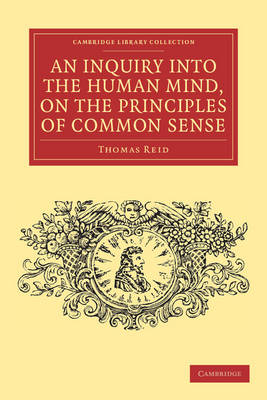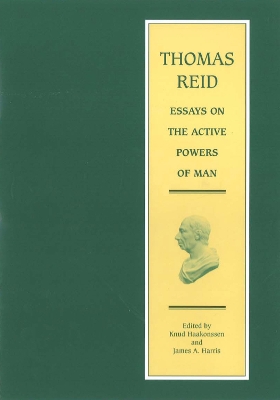Cambridge Library Collection - Philosophy
3 total works
An Inquiry into the Human Mind, on the Principles of Common Sense
by Thomas Reid
Essays on the Active Powers of Man (1788) was Thomas Reid's last major work. It was conceived as part of one large work, intended as a final synoptic statement of his overall philosophy. The first and larger part was published three years earlier as Essays on the Intellectual Powers of Man (edited as volume 3 of the Edinburgh Edition of Thomas Reid). These two works are united by Reid's basic philosophy of Common Sense, which sets out native principles by which the mind operates in both its intellectual and active aspects. The Active Powers shows how these principles are involved in volition, action, and the ability to judge morally. Reid gives an original twist to a libertarian and realist tradition that was prominently represented in eighteenth-century British thought by such thinkers as Samuel Clarke and Reid's near contemporary and acquaintance, Richard Price.
Traditionally seen as an epistemologist, Reid has in much recent work emerged as a significant contributor to the philosophy of action and to ethics. This edition of the Active Powers will be of interest not only to historians of philosophy but also to philosophers working on the theory of action, on the problem of free will, and in moral psychology and meta-ethics.


